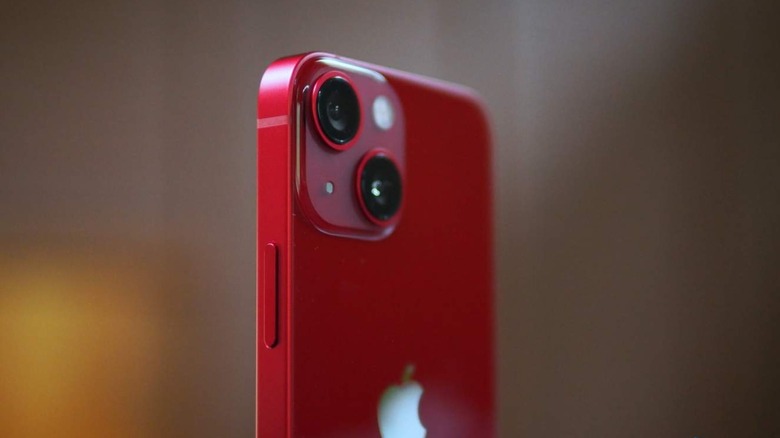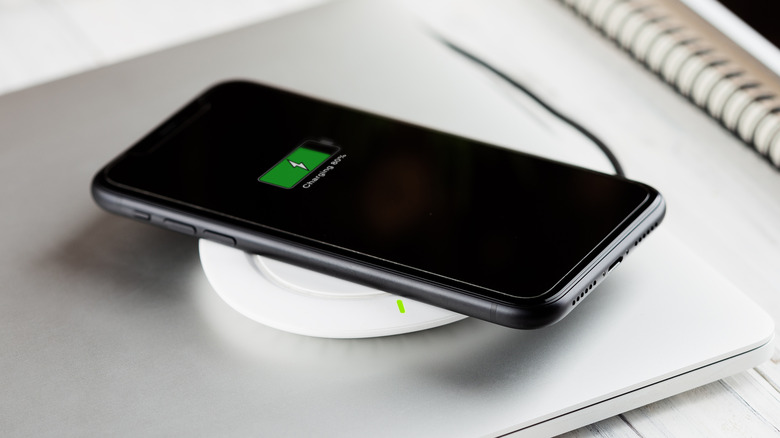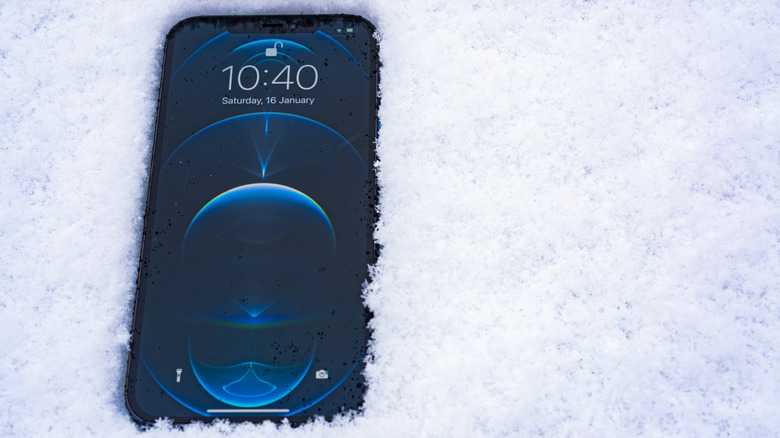How To Stop Your iPhone From Overheating
Chances are if you've used an iPhone for a year or more you've probably encountered problems with overheating. It's not a consistent issue, and it can affect most electronic devices, but iPhones getting too warm has been happening for quite some time.
Though it's important to keep in mind that just because your iPhone's gotten warm, that doesn't mean it's overheated. In fact, there are some situations where a warm iPhone is to be expected — and it's just a part of the process. Setting up your iPhone for the first time, or restoring from a backup, can raise its temperature due to all the activity and data transferring that's happening — but it's nothing to be concerned about. The same goes for when you're doing something that's very processor-intensive like playing a graphics-heavy game, using an augmented reality app, or watching a streaming video at a very high resolution.
As Apple suggests, even charging your iPhone can cause it to feel a bit warm — particularly wireless charging — but unless it's actually hot to the touch there's no need to worry. However, there are definitely some situations that will cause your iPhone to overheat, which you'll want to remedy as quickly as possible. If your iPhone gets too warm for too long it could cause permanent damage, including shortened battery life or even a complete shutdown if temperatures get extreme.
What's making my iPhone overheat?
While things like charging, intense usage, and data-heavy setup won't necessarily lead to overheating, it's still a possibility. So be mindful if any of those everyday activities cause concern — if it's warm enough for you to worry, it's better to play it safe if you can.
Another major factor in iPhones getting too hot is, naturally, the temperature around them. Whether you're outside on a hot day, doing something that requires a lot of processing power in an already warm room, or have your iPhone sitting in direct sunlight, you run the risk of making it overheat.
Aside from simply feeling warmer than you'd expect, you can also deduce that your iPhone is getting too warm if you notice a change in its behavior. It might suddenly take longer to charge than usual, or game and video performance will slow down. The display might also start to dim on its own or turn black completely. It could even disable your iPhone's camera flash.
How do I keep my iPhone from overheating?
If you think your iPhone has gotten too warm — either due to it feeling hot, performing poorly, or straight-up telling you with a direct warning — the first thing to do is bring its temperature down. This doesn't require anything drastic like putting it in a refrigerator or freezer (please don't put your iPhone in a refrigerator or freezer), but rather simply getting it away from whatever heat source is causing problems in the first place.
This could mean stepping into the shade or into an air-conditioned room, pulling it out of direct sunlight or removing it from your parked car, stopping whatever you might be doing on it and closing out all of the apps that are running, or shutting it off completely for a few minutes to give it a chance to cool down.
It's also important to take preventative measures in advance, so you don't have to worry about overheating or potential long-term damage to your iPhone. When possible, don't leave your phone inside a vehicle on a hot day. If you're outside, keep your iPhone in a pocket or otherwise tucked away when not in use so it won't be in direct sunlight for very long. When it's warm out, avoid using features and apps that you know require a lot of processing power — and consider temporarily turning off some intensive functions like GPS tracking and navigation.
And whatever you do, avoid no-name charging accessories and never charge your phone under your pillow at night!


